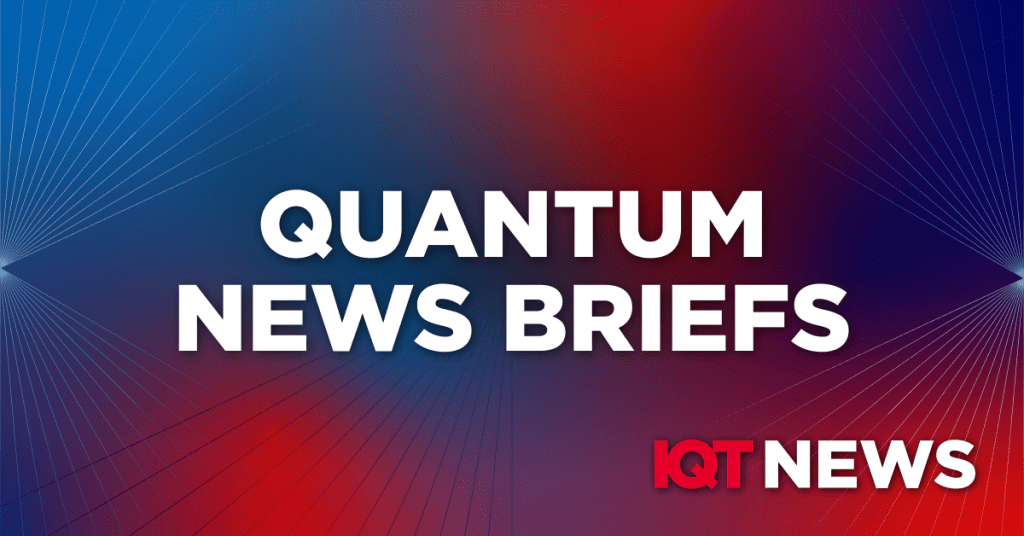Qruise and Quantum Machines Announce Strategic Partnership to Accelerate Quantum R&D
e.
Qruise, a pioneer in machine learning software for physics-centric R&D, and Quantum Machines (QM), the leading provider of processor-based quantum controllers, announced on September 16 a strategic partnership aimed at accelerating the development of quantum technology. As part of this collaboration, Quantum Machines will offer Qruise’s advanced software as an add-on to its own products, following the success of their recent joint research that significantly enhances the fidelities of superconducting quantum gates.
The partnership leverages the strengths of both companies to provide quantum researchers and developers with a comprehensive solution for high-precision control, calibration, and characterisation of quantum devices. Qruise’s cutting-edge software, optimised for peak performance with Quantum Machines’ hardware, performs rapid, in-depth characterisation of quantum devices and generates highly accurate Digital Twins of quantum systems. This integration allows users to pinpoint and address sources of noise and distortion that limit device performance.
Qruise is creating unique machine learning software to debug and reverse-engineer physical systems for R&D labs developing new devices. Their mission is to revolutionise physics-centric R&D by providing virtual physicists to work alongside human physicists and engineers in labs developing cutting-edge technology, starting with quantum computers and quantum sensors
Keysight Introduces Quantum Circuit Simulation the First Circuit Environment with Frequency-Domain Flux Quantization
In the realm of superconducting quantum circuits, accurately modeling flux quantization is paramount. This fundamental property ensures that the magnetic flux through a superconducting loop is quantized in discrete units, a critical aspect for the operation of quantum circuits. Google Quantum AI and Keysight have collaborated to address this challenge and enhance quantum circuit simulations through the integration of frequency-domain flux quantization into circuit solvers. By precisely modeling flux quantization, the new solution enables researchers to design more reliable and efficient superconducting circuits.
The new solution streamlines quantum workflow with advanced flux quantization in the frequency domain, providing unparalleled accuracy and capability in analyzing large, highly nonlinear quantum circuits. This enables researchers to model complex quantum circuits with better accuracy, reducing computational errors and enhancing the overall reliability of simulations.
Quantum Xchange Recognized as an IDC Innovator for Post-Quantum Cryptography
IDC Innovator reports highlight emerging vendors that are offering new technology, a groundbreaking solution to an existing issue, and/or an innovative business model. Since its launch in 2018, Quantum Xchange has been at the forefront of the quantum security industry, helping to create the market category through product innovation, evangelism, and strong global partnerships.
he IDC Innovator report comes when the National Institute for Standards and Technology (NIST) has announced its first three finalized post-quantum cryptography (PQC) algorithms. The new standards are a milestone event for cybersecurity teams and mark a critical step forward in preparing the world’s digital infrastructure for the post-quantum era. NIST is encouraging organizations to begin transitioning to the new PQC standards as soon as possible.
In Other News: TheNextWeb reports “Finland’s IQM has now produced 30 full-stack quantum computers”
The facility, which spreads over 5,000 square metres, now has a production capacity of up to 20 full-stack quantum computers per year. This level of output has the potential to reduce the overall cost of on-premise (as opposed to cloud-based) quantum computing going forward.
“One of the key bottlenecks in quantum computer adoption has been prohibitively high prices,” said IQM co-CEO Mikko Välimäki. “We are the first quantum computer manufacturer with the goal of taking quantum computers to a much wider market with industrialised manufacturing capabilities that help drive the prices lower.”
In Other News: Quantinum Blog reports “By the end of the decade, we will deliver universal, fully fault-tolerant quantum computing”
- Architectural improvements that will enable hundreds of logical qubits while reducing the resources required to make them
- Entangling 12 highly reliable logical qubits in a recent collaboration with Microsoft
- Previous milestones demonstrating a faster-than-expected pace, including winning the race to “three 9s” hardware fidelity and surpassing break even with logical qubits
- thousands of physical qubits
- physical error rates less than 10-4
- All of our most competitive features: all-to-all connectivity, low crosstalk, mid-circuit measurement and qubit re-use
- Conditional logic
- Real-time classical co-compute
- Physical variable angle 1 qubit and 2 qubit gates
- Hundreds of logical qubits
- Logical error rates better than 10-6 with analysis based on recent literature estimating as low a 10-10
